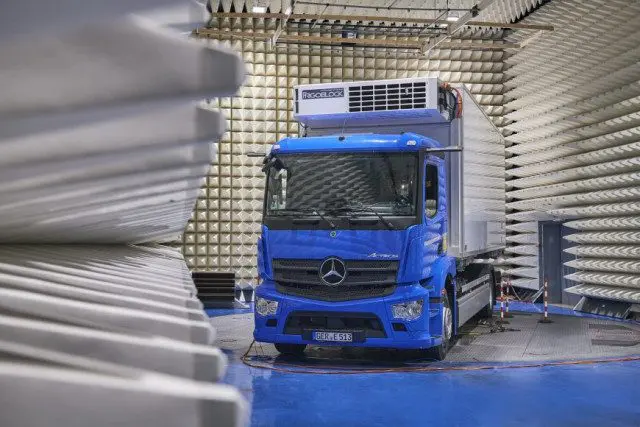In early 2021, the EU has set a target of 20,000 environmentally friendly vehicles by 2030
The shift to electric vehicles will affect not only car manufacturers but also trucks. They will also be forced to produce fully environmentally friendly machines, and deadlines for their introduction on the market are already being discussed. Additionally, electric trucks come with safety features to reduce the chance of collisions. But don’t drop your car accident lawyer just yet as the new technologies are in their infancy.
One recent study shows that 6.2 million medium and heavy-duty vehicles are currently on the roads of the Council of Europe. Its average age is 13 years, and nearly 98% of them have diesel engines. And only 2,300 trucks boast environmental friendliness and safety.
This prompts the CoE authorities to prepare a plan that provides for the complete abandonment of diesel trucks and their replacement with environmentally friendly models. As early as 2030, manufacturers will be obliged to put on the market 80,000 trucks with environmentally friendly engines and meet safety requirements. They will be the first to replace the currently used diesel trucks.
Manufacturers of environmentally friendly trucks will also be required to pay attention to equipment and dynamic characteristics. Otherwise, the new machines will not be able to compete with diesel models and the transition to environmentally friendly trucks will be a serious problem.
Mercedes-Benz introduced its first large electric truck in mid-2021. The eActros, designed to transport heavy loads, travels more than 400 km on a single charge.
German manufacturer Mercedes-Benz has introduced its first electric truck to transport heavy loads over short distances in Europe. It is called eActros, and with it the company is trying to electrify its European logistics industry with machines of this class.
The truck is powered by two liquid-cooled electric motors attached to the rear axle. Together they produce 442.5 hp. continuous power, with the possibility of a temporary increase to 536 hp. Mercedes clarifies that the placement of the engines on the rear axle, rather than in the center, leaves more space for the batteries.
The electric machine can travel 400 km, and charging is fast, regardless of the large batteries. They can be charged from 20 to 80% in just one hour. This makes the truck very suitable for use in cities, where quiet engines are also a major advantage.
Mercedes-Benz eActros is equipped with a system that helps its owners plan their route according to the charging infrastructure so that it costs them as little money as possible. The advanced infotainment system informs drivers about the remaining energy and energy consumption.
To increase safety, emergency braking technology is available to help avoid collisions. Mercedes’ latest reversing technology and infotainment systems are standard.
The launch of eActross is the first step in Mercedes’ plan to transform the entire European car fleet into electric vehicles by 2039. The production of the truck will start in the fall, and its prices will be revealed.
Volvo launched the first electric heavy truck in 2020. The range of the 44-ton machine will be only up to 300 kilometers.
Swedish giant AB Volvo has announced that it will be among the first manufacturers to launch an all-electric heavy-duty tractor. The 44-ton truck will start to be delivered to customers next year, with a range of up to 300 kilometers on a single charge, depending on the configuration. Volvo Trucks is already testing an electric concrete mixer in partnership with Swerock.
The Swedish giant already offers up to 26 tons of electric Volvo FE Electric and FL Electric, and has been present on the electric bus market since 2008.
The new electric tractors will be variants of the Volvo FH, FM and FMX, intended mainly for regional transport and construction. This means that they will travel relatively short distances and the small battery range will not be a problem. Company chief Roger Alm told The Financial Times that the operating costs of such a truck – including price, maintenance and residual value – would be “as close as possible” to those of a diesel truck.
As for heavy-duty long-haul trucks, Volvo plans to offer electrified options “this decade”, relying on a mix of purely electric models and those with hydrogen fuel cells. By 2040, the entire truck manufacturer’s range will have zero emissions.
It is not yet certain that Volvo will be a leader in large electric trucks. Tesla also plans to release its Semi in 2021, after it was once forced to postpone it. However, Semi is more focused on intercity transport, with a range between 480 and 800 km, and with a significantly higher price. Electric models are also prepared by Mercedes, Nikola, Cummings and the Swedish Volta.
AB Volvo owns four truck brands – Volvo, Renault Trucks, Mack Trucks and UD Trucks. The company has no direct connection with Volvo cars, which were sold to Ford in the 1990s and are now controlled by China’s Geely. However, Geely boss Li Shufu has recently also been a shareholder in AB.







